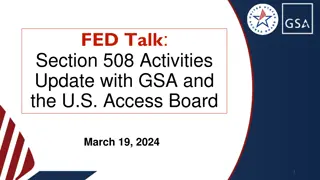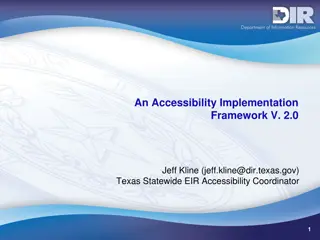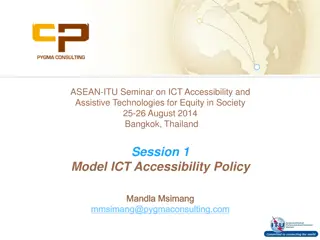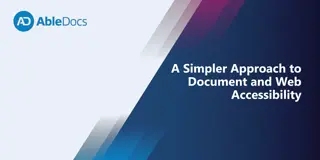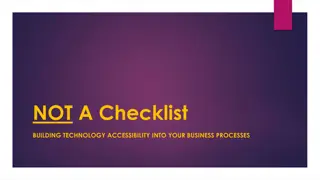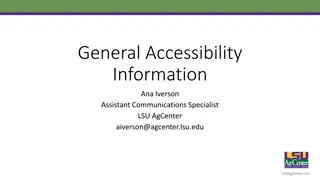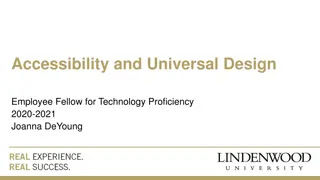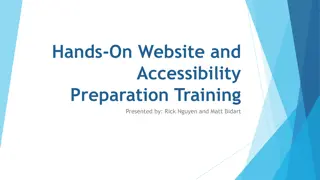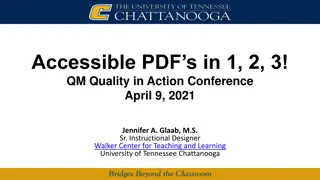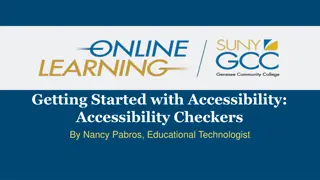Practicing Accessibility in Presentation Slides
Create accessible PowerPoint slides by using good design principles and considering factors like color contrast, heading structure, and alternative text for images. Learn the importance of accessibility for all users, including those with visual impairments. Follow guidelines to ensure your documents are accessible to everyone, regardless of disabilities or preferences. Explore tools and resources for improving document accessibility, such as WebAIM tutorials and Microsoft Word tips.
Download Presentation

Please find below an Image/Link to download the presentation.
The content on the website is provided AS IS for your information and personal use only. It may not be sold, licensed, or shared on other websites without obtaining consent from the author.If you encounter any issues during the download, it is possible that the publisher has removed the file from their server.
You are allowed to download the files provided on this website for personal or commercial use, subject to the condition that they are used lawfully. All files are the property of their respective owners.
The content on the website is provided AS IS for your information and personal use only. It may not be sold, licensed, or shared on other websites without obtaining consent from the author.
E N D
Presentation Transcript
Good Design is Accessible Design Design is a moral issue. Jef Raskin
Use color with care Provide good color contrast. Black text on a white or light background is the most readable. Patterns and images behind text make it more difficult to read. If you are creating an HTML document to post in your course, consider using CSS to assign colors. This allows the user to change the way colors are viewed if desired. Do not use color alone to convey meaning. The use of color to convey meaning may result in your images or information not being accessible to students who are color blind. Some students may choose to print materials using a black and white printer. The images would not be meaningful once printed. Source: http://ualr.edu/disability/online-education/#navigation
Document Accessibility Use headings to provide structure. People often make the mistake of creating headings by simply applying sizes, color, bold or italics. While this makes the document appear to have structure, there is not structure when someone reads the document using a screen reader. Provide alternative text for images. Create lists by using the actual ordered and unordered list tools. Avoid the use of Word Art and text box tools. View the tutorials below for more details on this topic.
Document Accessibility Resource Highlights WebAIM Tutorial: Microsoft Word Accessibility Techniques Penn State Accessibility: MS Word Tips
Table Department Sales Accounting Purchasing Marketing Employees 45 30 24 15 Contracts 3 2 10 16
Website Accessibility Assessment Results PERCENTAGE OF ERRORS Fewer than 2 3 to 5 6 to 10 More than 10 5% 30% 20% 45%



